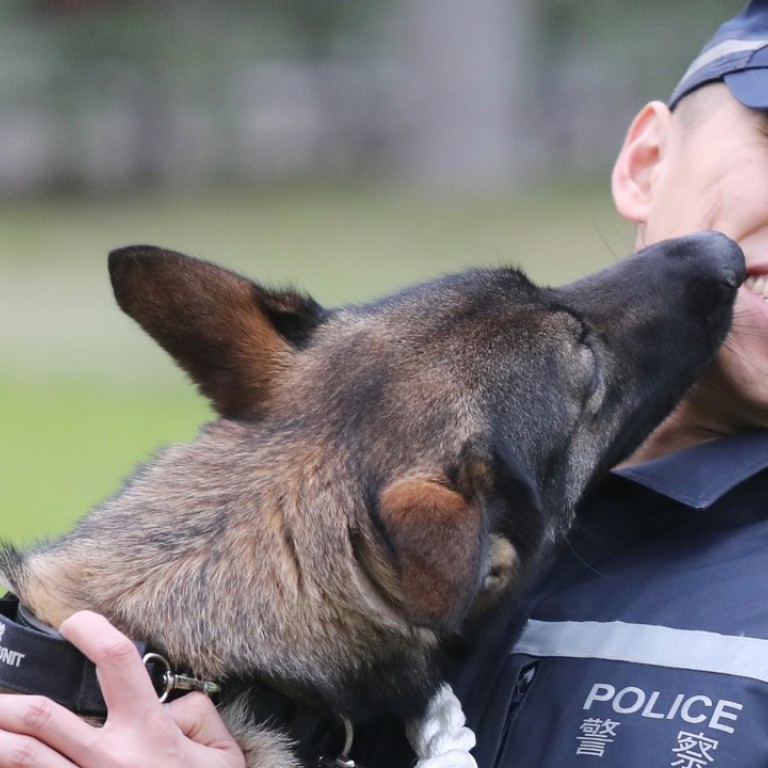
New puppy recruits to join Hong Kong police dog unit amid looming canine retirements
21 working dogs, or around 15 per cent of the total workforce, will have to retire by next year – but pup replacements are already in training
Hong Kong is facing an ageing population and work force – and so is the city’s squad of crime-fighting canines.
Twenty-one working dogs, or around 15 per cent of the total canine workforce in the Police Dog Unit (PDU), will have to retire by next year when they reach the age of nine – the equivalent to a human aged between 60 and 68 years old.
“Because we were facing this retirement wave of our working dogs, we had to plan one to two years ahead to either breed the dogs, or find opportunities to buy or adopt them from overseas,” the unit’s Chief Inspector Lee Cheuk-wai said.
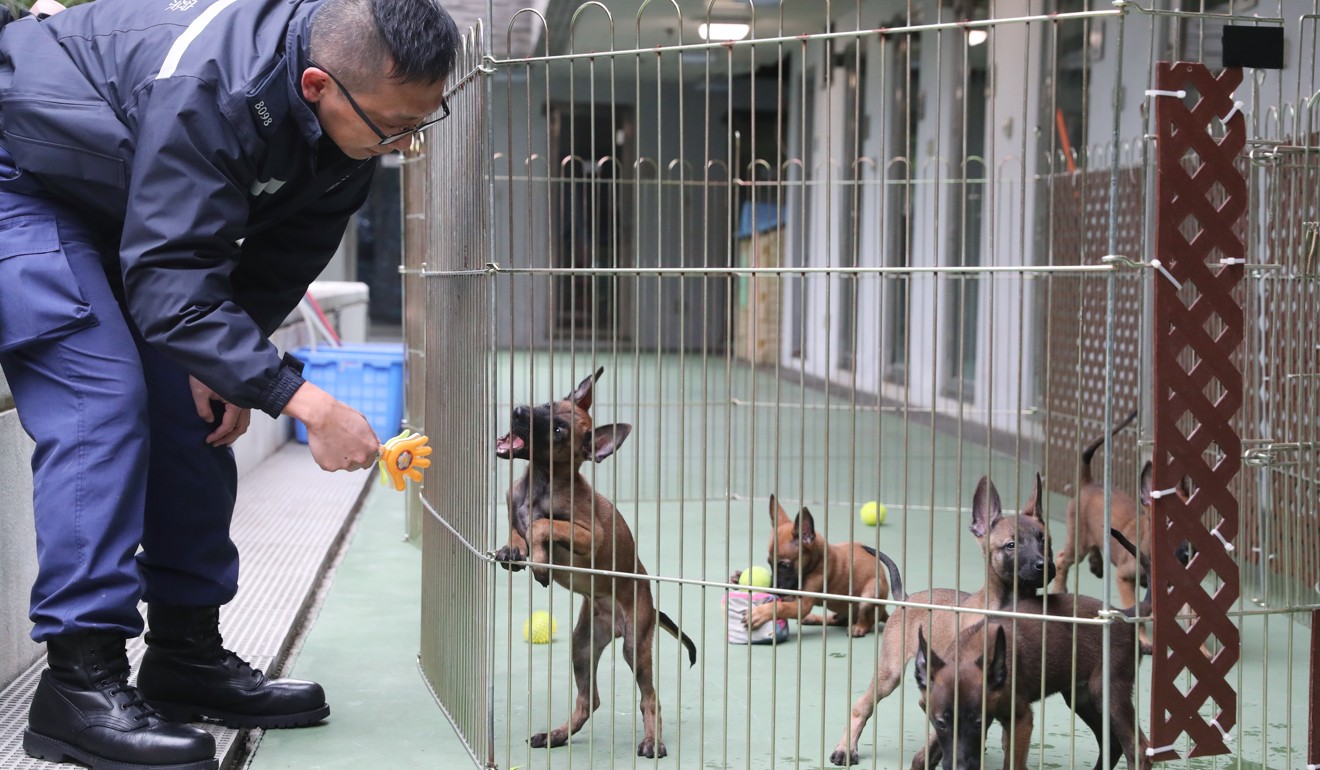
The unit was established in 1949 with four patrol dogs. Since then, it has expanded to a total of 201 dogs, with six different breeds that serve different purposes.
For example, German shepherd patrol dogs can help control a Lan Kwai Fong brawl, while agile springer spaniels with their superior sense of smell act as search dogs for narcotics and explosives.
Hong Kong enlists cash-catching dogs in battle against dirty money
Around 35 per cent of the animals are the self-bred offspring of police dogs, while another 35 per cent are bought or adopted from the Netherlands, Belgium or Australia. Owners, other government departments and non-governmental organisations have also previously donated dogs that were trained for the PDU.
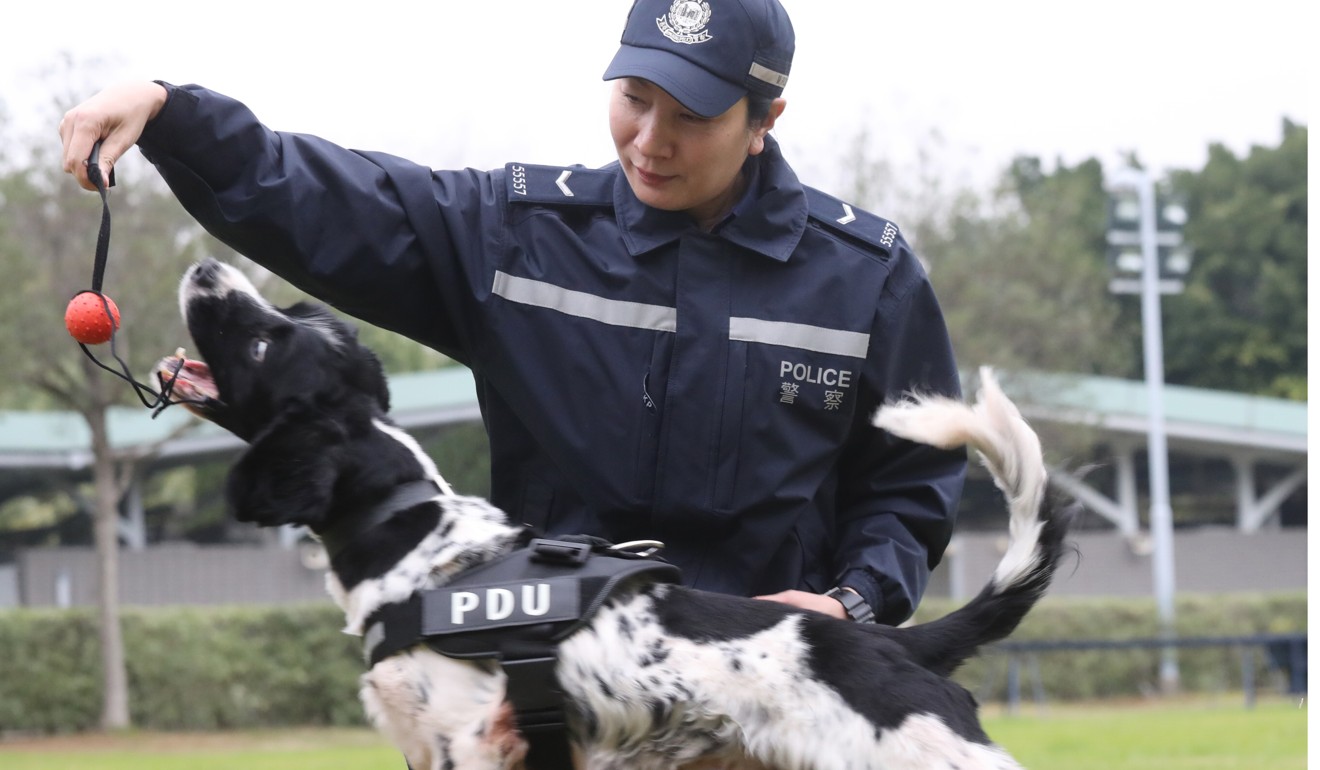
With next year’s retirements in mind, the unit bred 20 puppies – one batch of Labrador retrievers and another of Belgian shepherds, or Malinois – at the end of 2017 so that they could be trained and ready to take over in 2019.
Puppies are first kept in a kennel at the unit’s headquarters and training base at Sha Ling, close to the border between Hong Kong and mainland China.
Foster system for Hong Kong police dogs to be phased out
They remain there for the first five months, with classical music and environmental noise being played to them on a 24-hour basis.
“We make sure that they can adapt to environmental noise, such as the sound of cars and people talking, at an early age and won’t easily feel scared later on,” said Inspector Jimmy Ha Yick-hang.
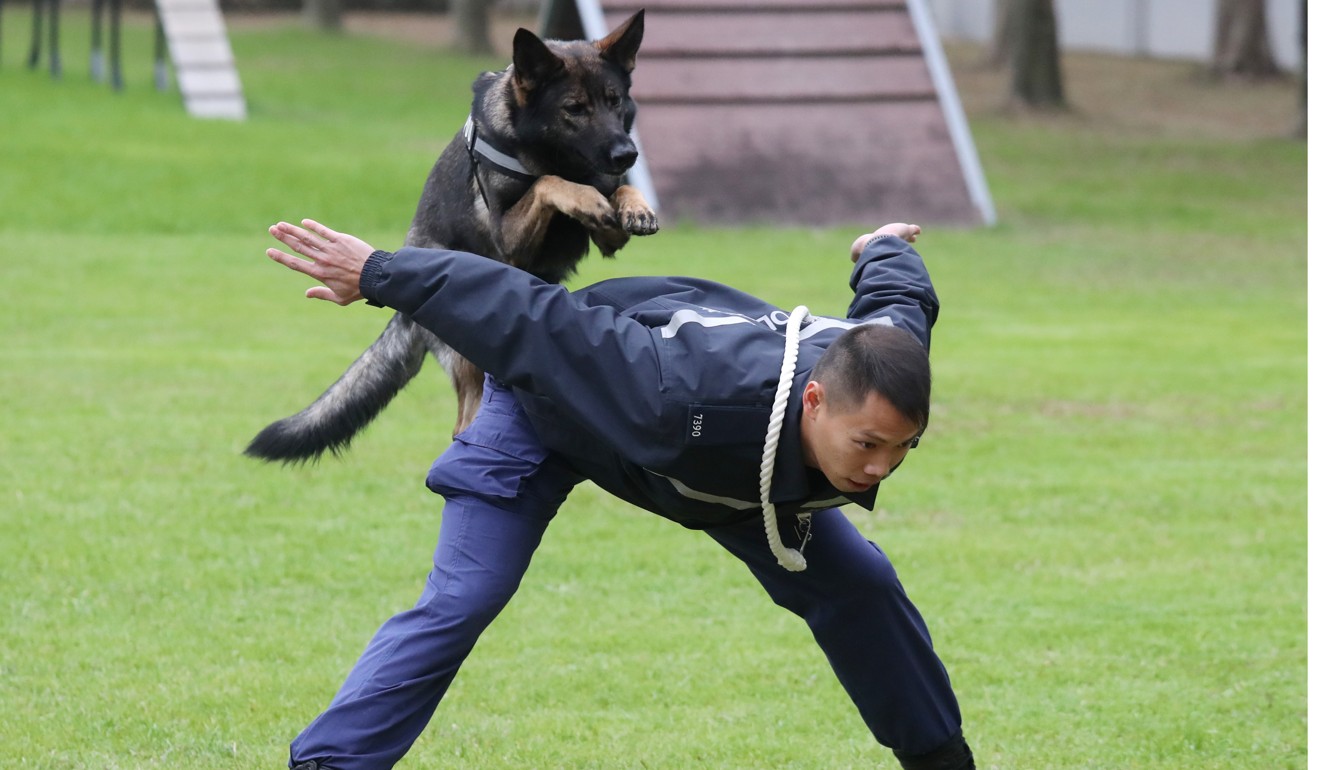
The puppies are then dispatched to a PDU officer in the city for preliminary training and receive official training for their specific posts when they are 1½ years old.
Animal cruelty police force needed in Hong Kong, experts say, after shocking cases exposed online
However, not all of the unit’s self-bred puppies are suitable for the canine squad, Lee said.
“There is bound to be one or two dogs whose physical condition is not up to par, or they may not have the right character for the job,” he said.
Lee said the unit is working to fine-tune the dog training regimen, aiming to increase the success rate from the current average of 70 per cent to 80 to 90 per cent.
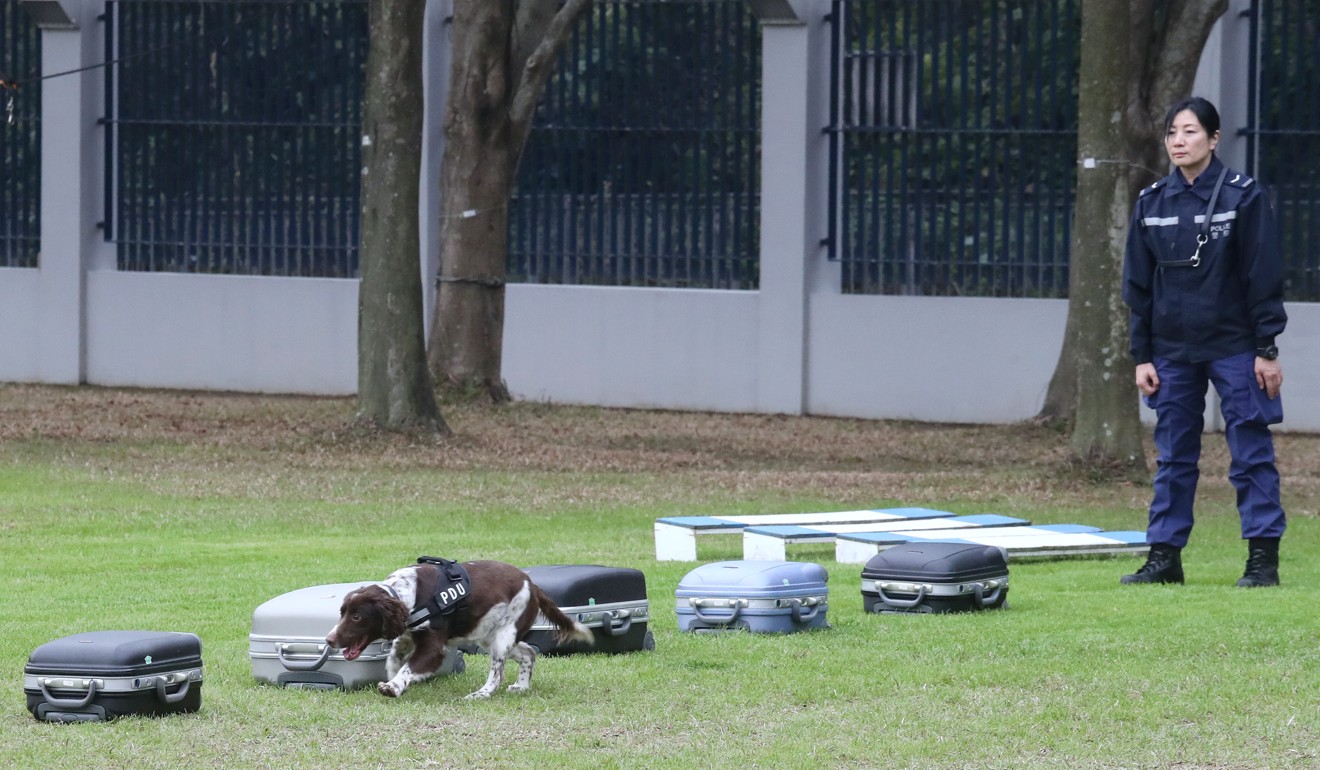
Police handler Eva Tsung Wai-ling, who has worked with six dogs in her career, said developing an emotional bond with her animal partner was crucial in her line of work.
“If you take search dogs, for example, you need to keep them happy because they treat it as a game like they’re finding treasure. If they’re unhappy, I get unhappy, and it’ll become very hard to work with them and do your job,” Tsung said.

